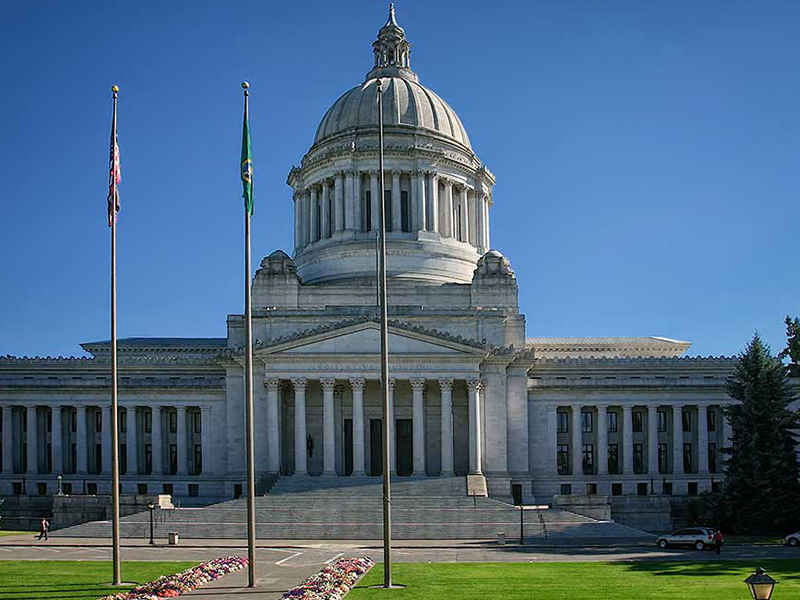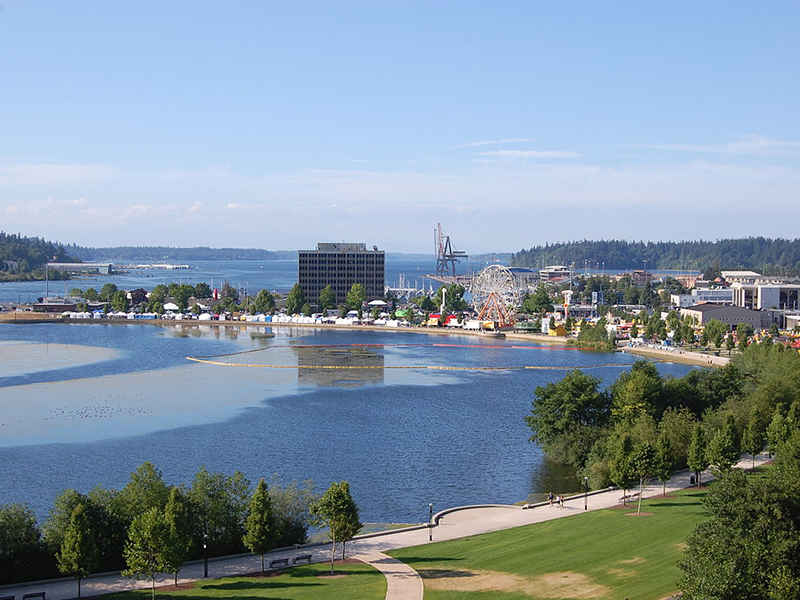The site of Olympia has been home to Lushootseed-speaking peoples known as the Steh-Chass (or Stehchass; who became part of the post-treaty Squaxin Island Tribe) for thousands of years. Other Native Americans regularly visited the head of Budd Inlet and the Steh-Chass including the other ancestor tribes of the Squaxin, as well as the Nisqually, Puyallup, Chehalis, Suquamish, and Duwamish. The first recorded Europeans came to Olympia in 1792. Peter Puget and a crew from the British Vancouver Expedition are said to have explored the site, but neither recorded any encounters with the resident Indigenous population here. In 1846, Edmund Sylvester and Levi Smith jointly claimed the land that now comprises downtown Olympia. In 1851, the U.S. Congress established the Customs District of Puget Sound for Washington Territory and Olympia became the home of the customs house. Its population steadily expanded from Oregon Trail immigrants. In 1850, the town settled on the name Olympia, at the suggestion of local resident Colonel Isaac N. Ebey, due to its view of the Olympic Mountains to the Northwest. The area began to be served by a small fleet of steamboats known as the Puget Sound Mosquito Fleet.


Over the course of two days, December 24–26, 1854, Governor Isaac I. Stevens negotiated the Treaty of Medicine Creek with the representatives of the Nisqually, Puyallup, Squawksin, Steh'Chass, Noo-Seh-Chatl, Squi-Aitl, T'Peeksin, Sah-Heh-Wa-Mish, and S'Hotl-Ma-Mish tribes. Stevens' treaty included the preservation of Indigenous fishing, hunting, gathering and other rights. It also included a section which, at least as interpreted by United States officials, required the Native American signatories to move to one of three reservations. Doing so would effectively force the Nisqually people to cede their prime farming and living space. One of the leaders of the Nisqually, Chief Leschi, outraged, refused to give up ownership of this land and instead fought for his peoples' right to their territory, sparking the beginning of the Puget Sound War. The war ended in the controversial execution of Leschi.
In 1896, Olympia became the home of the Olympia Brewing Company, which brewed Olympia Beer until 2003.
The 1949 Olympia earthquake damaged many historic buildings beyond repair, and they were demolished. Parts of the city also suffered damage from earthquakes in 1965 and 2001.
We offer solutions for any moving needs. Our team is highly skilled in local moving, office moving, furniture hoisting, piano/pool table moving, packing, and so much more! Our facility is well equipped for for short and long term storage.